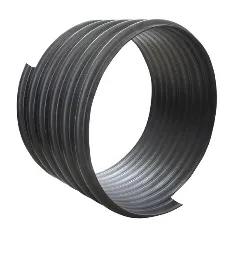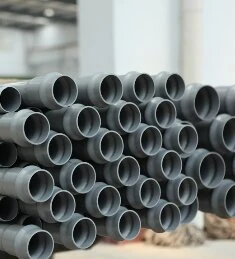ጥር . 25, 2025 23:00 Back to list
hdpe pipe
High-density polyethylene (HDPE) pipes have consistently been the go-to solution for various industries due to their robustness, versatility, and cost-effectiveness. These pipes are a testament to engineering innovation, having transformed from a niche solution to a staple in several sectors, including construction, agriculture, and water management. This article delves into the distinct advantages and practical applications of HDPE pipes, providing insights into why they are a crucial product in many fields today.
Beyond just functional benefits, HDPE pipes are also environmentally advantageous. They are fully recyclable and entail a lower carbon footprint during production and installation compared to traditional pipe materials. By choosing HDPE pipes, industries can align with sustainable practices while meeting their functional requirements. Of course, with any product as widely applicable as HDPE pipes, understanding specific industry applications enhances their usability. For instance, in mining operations, the transport of corrosive materials often necessitates specially designed piping systems. HDPE pipes meet this need by providing robust resistance against the abrasive and corrosive properties of mining slurries. Furthermore, as municipalities search for ways to modernize aging infrastructure, HDPE pipes offer a practical and efficient upgrade path. Retrofits using these pipes can dramatically extend the service lifespan of existing water management systems, making them a cost-efficient investment for the long term. The trust placed in HDPE pipes across these varied applications stems not only from their material properties but also from the credible endorsements by engineers and field experts who continually vouch for their performance. As industries lean towards more sustainable and reliable infrastructure solutions, HDPE pipes stand out as a product imbued with both authority and expertise. In conclusion, HDPE pipes represent the confluence of practical engineering, sustainability, and economic efficiency. Their adaptability to different environments and functionalities makes them a critical asset across industries. As technology evolves and the demand for durable infrastructure rises, HDPE pipes are poised to remain at the cutting edge of industrial solutions, continuing to set the standard for piping systems worldwide.


Beyond just functional benefits, HDPE pipes are also environmentally advantageous. They are fully recyclable and entail a lower carbon footprint during production and installation compared to traditional pipe materials. By choosing HDPE pipes, industries can align with sustainable practices while meeting their functional requirements. Of course, with any product as widely applicable as HDPE pipes, understanding specific industry applications enhances their usability. For instance, in mining operations, the transport of corrosive materials often necessitates specially designed piping systems. HDPE pipes meet this need by providing robust resistance against the abrasive and corrosive properties of mining slurries. Furthermore, as municipalities search for ways to modernize aging infrastructure, HDPE pipes offer a practical and efficient upgrade path. Retrofits using these pipes can dramatically extend the service lifespan of existing water management systems, making them a cost-efficient investment for the long term. The trust placed in HDPE pipes across these varied applications stems not only from their material properties but also from the credible endorsements by engineers and field experts who continually vouch for their performance. As industries lean towards more sustainable and reliable infrastructure solutions, HDPE pipes stand out as a product imbued with both authority and expertise. In conclusion, HDPE pipes represent the confluence of practical engineering, sustainability, and economic efficiency. Their adaptability to different environments and functionalities makes them a critical asset across industries. As technology evolves and the demand for durable infrastructure rises, HDPE pipes are poised to remain at the cutting edge of industrial solutions, continuing to set the standard for piping systems worldwide.
Share:
Next:
Latest news
-
Premium PVC Round Rods: Durable, Chemical Resistant, Easy to Machine
NewsAug.11,2025
-
PP U-channel: Chemical-Resistant, Lightweight & Durable
NewsAug.10,2025
-
Transparent PVC Pipe: Clear Flexible Tubing for Fluids
NewsAug.09,2025
-
Durable PP Rigid Sheet: Versatile & High-Quality Plastic Panels
NewsAug.08,2025
-
Premium Glossy PP Rigid Sheet – Durable & Versatile
NewsAug.07,2025
-
High-Quality HDPE Sheet | Durable Plastic Panels
NewsAug.06,2025

